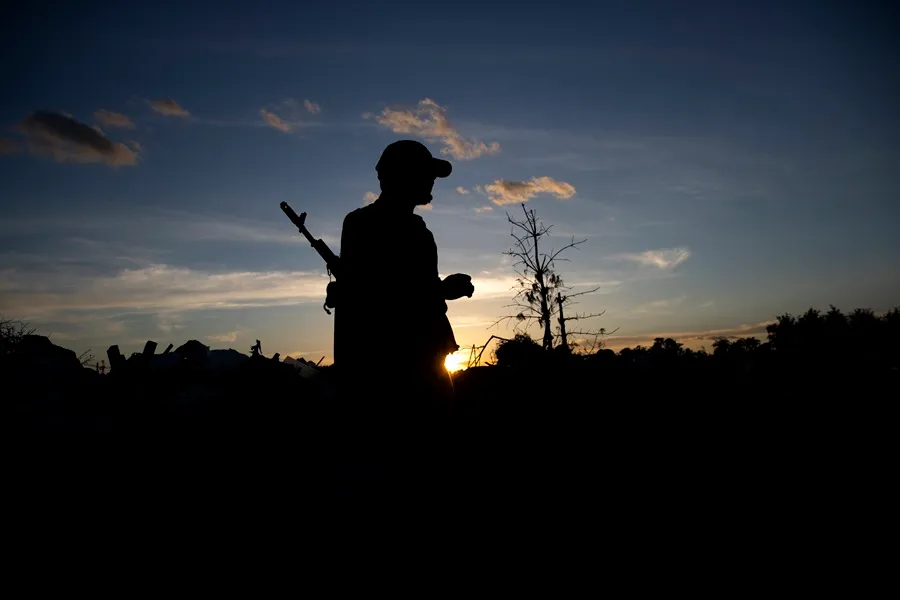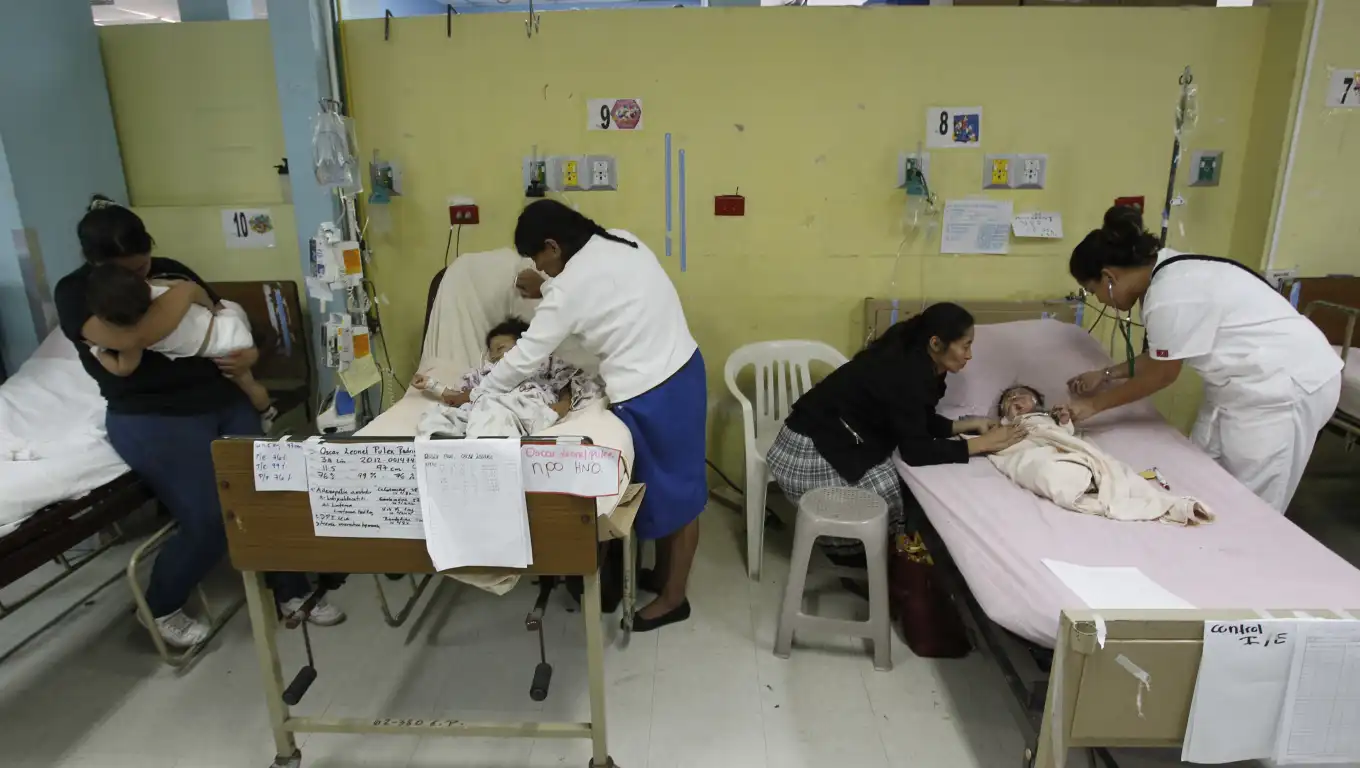International
NATO accuses Russia and North Korea of “dangerously expanding” the war in Ukraine

NATO, along with Australia, Japan, New Zealand, South Korea and Ukraine, “strongly” condemned this Friday the decision of Russia and North Korea to “dangerously expand” the war against Ukraine by involving “thousands of troops” North Koreans in the war.
That decision by Russian President Vladimir Putin and his North Korean counterpart, Kim Jong Un, is a “dangerous expansion” of North Korea’s “already substantial support” for Russia’s war effort with “the supply of millions of ammunition and ballistic missiles” in its war against Ukraine, the Atlantic Council said in a statement, joined by Canberra, Tokyo, Wellington, Seoul and Kiev.
And it is that the deepening of military cooperation between Russia and North Korea “deeply” affects Euro-Atlantic security, but with implications also for the Indo-Pacific region, said the North Atlantic Council, NATO’s highest decision-making body.
Military cooperation between Russians and North Koreans
In addition, the increase in military cooperation between Russians and North Koreans constitutes “a violation of multiple resolutions” of the United Nations Security Council, including 2270 (2016), 1718 (2006) and 1874 (2009), which is “especially scandalous if one takes into account Russia’s status as a permanent member” of it, they stressed.
For that reason, they urged Russia to comply again with those resolutions and to abide by its international obligations.
They also pointed out that Russia’s statement of September 26 in which it stated that the denuclearization of North Korea “is not on the table” is “unacceptable.”
That position, they noted, “undermines the global non-proliferation regime, directly contradicts the relevant UN Security Council resolutions and further exacerbates regional tensions.”
Russian declaration
For the North Atlantic Council, the Russian declaration is part of its broader effort to undermine the global non-proliferation regime and dismantle United Nations sanctions.
Therefore, NATO and the five signatories urged all other countries not to provide any kind of help to Russia’s aggression and condemned “all those who facilitate and, therefore, prolong Russia’s illegal war against Ukraine.”
In this context, NATO said it will continue to work with its partners, particularly in the Indo-Pacific, to promote peace and stability and prevent Russia and those who facilitate its war effort from undermining regional and global stability.
While stressing that the allies remain “as determined as ever” to support Ukraine “for as long as necessary.”
International
Exclusive Tucson Neighborhood Shaken by Disappearance of Savannah Guthrie’s Mother

The disappearance of Nancy Guthrie, mother of well-known U.S. journalist Savannah Guthrie, has shaken the exclusive Catalina Foothills neighborhood in northern Tucson, Arizona. For the past eleven days, the area has become the focus of an intensive investigation and constant media attention.
The 84-year-old woman was last seen on January 31, when she returned home after a family dinner. Since then, authorities have released few details about the suspected abduction.
“It is worrying that an elderly person could be the victim of a crime like this in her own home; we are a community of retirees,” Mario Ruiz, a resident who lives near the property, told EFE.
He explained that neighbors in the area tend to respect each other’s privacy, and many homes do not even have fences, surrounded only by the desert landscape about 110 kilometers from the Mexican border.
Support for the family is visible in an improvised altar set up outside Guthrie’s house. Flowers, candles and a message written on a stone — “Please pray, bring her home” — reflect the concern felt by the community.
During a visit to Catalina Foothills on Wednesday, a strong presence of FBI agents could be seen patrolling nearby roads and neighborhoods in search of any clue that might help locate Guthrie.
Officers have been checking bushes, trash containers and surrounding areas near the residence, which is located in one of Tucson’s most exclusive districts, close to shopping centers, private golf courses and resorts.
International
Over 50 Civil Groups Urge House to Impeach DHS Secretary Kristi Noem

More than 50 civil society organizations, including Latino collectives and migrant advocacy groups, on Tuesday urged the U.S. House of Representatives to open impeachment proceedings against Homeland Security Secretary Kristi Noem, whom they accuse of leading a migration policy that is “violent, reckless, and contrary to the Constitution.”
The request was submitted through a letter sent to House Speaker Mike Johnson and other legislative leaders. In the document, the organizations argue that Noem has encouraged repressive practices that have left multiple victims and have “intentionally undermined the mission of the Department of Homeland Security (DHS).”
Among the signatories are Voto Latino, Freedom for Immigrants (FFI), Hispanic Federation, UnidosUS, and the Latino Victory Project. The groups emphasized that at least 187 lawmakers already support the impeachment initiative introduced in January by Representative Robin Kelly for alleged “high crimes and misdemeanors.”
The accusations include the alleged obstruction of congressional access to migrant detention centers and the excessive use of force, with at least 14 people shot since July 2025. They also cite three documented deaths, including those of U.S. citizens Renee Good and Alex Pretti.
The organizations further criticized the detention of migrant children, pointing to the case of five-year-old Liam Conejo Ramos, arrested in Minnesota last month, which sparked nationwide controversy.
They also denounced that operations carried out by Immigration and Customs Enforcement (ICE) have resulted in due process violations, unlawful detentions of Indigenous citizens, and disregard for court orders. According to the signatories, Noem has “dismantled” civil rights protections within the DHS and has shown a lack of understanding of constitutional principles such as habeas corpus.
Central America
Guatemala to Phase Out Longstanding Medical Cooperation Agreement with Cuba

Guatemala’s government announced on Tuesday that it will end this year a cooperation agreement with Cuba that has brought doctors from the Caribbean nation to work in the Central American country.
Guatemala’s Health Ministry told EFE that the program, which has been in place for nearly three decades, will be phased out progressively throughout 2026.
According to the same source, there are currently 412 Cubans in Guatemala under the agreement, including 333 physicians.
Cuban medical brigades assigned to Guatemala have traditionally been deployed to various regions of the country to provide primary health care to local communities.
“The decision follows a technical assessment aimed at strengthening the sustainability of the national workforce and consolidating the public health system’s own capacities,” the Guatemalan ministry said.
Earlier this week, lawmaker Sonia Gutiérrez, from the left-wing Winaq party, warned that the move “could be an inhumane act that threatens the health and lives of the country’s most vulnerable populations,” given the historic importance of Cuban doctors in providing medical care.
For that reason, the legislator summoned Health Ministry authorities to Congress, as permitted by law, to provide further details about the decision.
Former human rights ombudsman Jordán Rodas Andrade also weighed in on social media, recalling that “for 27 years Cuban doctors have been the backbone of health care in Guatemala’s most neglected areas,” and stressing that “ending this agreement is an act of ingratitude that leaves the most vulnerable unprotected.”
President Bernardo Arévalo’s government told EFE that, in order to guarantee continued care, it will implement a gradual replacement plan that includes hiring national personnel.
-

 Central America4 days ago
Central America4 days agoSalvadoran fans plan birthday surprise for Shakira at historic show
-

 Central America3 days ago
Central America3 days agoGuatemala isolates Barrio 18 leader after attacks that killed 11 police
-

 Sports4 days ago
Sports4 days agoShakira ignites El Salvador with near sold-out residency at Mágico González Stadium
-

 International1 day ago
International1 day agoU.S. Health Department says CDC grants no longer match agency priorities
-

 International1 day ago
International1 day agoDespite homicide drop, overall deadly violence remains high in Mexico: study
-

 International1 day ago
International1 day agoICE Arrests Reach 379,000 Under Trump, Testimony Shows Amid Minnesota Shootings
-

 International1 day ago
International1 day agoJet Fuel Crisis Hits Cuba: Flights Disrupted, Air Canada Cancels Services
-

 International1 day ago
International1 day agoSheinbaum Urges Mexico to ‘Jealously’ Guard Sovereignty at Air Force Anniversary
-

 International1 day ago
International1 day agoMEPs Approve Plan That Could Fast-Track Rejection of Some Asylum Claims
-

 International1 day ago
International1 day agoMexico Rises Slightly to 141st in Global Corruption Perceptions Index 2025
-

 Central America1 hour ago
Central America1 hour agoGuatemala to Phase Out Longstanding Medical Cooperation Agreement with Cuba
-

 International1 hour ago
International1 hour agoOver 50 Civil Groups Urge House to Impeach DHS Secretary Kristi Noem
-

 International1 hour ago
International1 hour agoNew York’s New Archbishop Names Óscar Romero as His Favorite Saint
-

 International1 day ago
International1 day agoChile Unveils Latam-GPT to Give Latin America Its Own AI Model
-

 International1 hour ago
International1 hour agoExclusive Tucson Neighborhood Shaken by Disappearance of Savannah Guthrie’s Mother


























